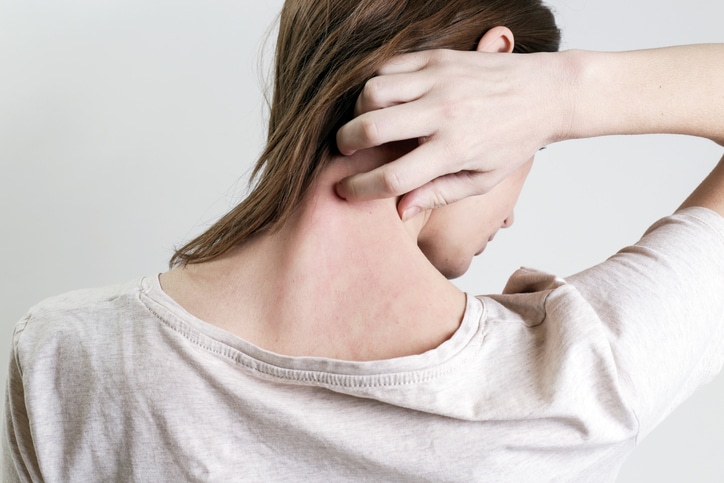What Can Help My Psoriasis?

Psoriasis can make you self-conscious and cause uncomfortable symptoms, but it can be treated and controlled.
What is psoriasis?
Psoriasis is a chronic skin condition caused by an overactive immune system. Normally, skin cells grow deep in your skin and rise to the surface, where they eventually fall off. This process takes about a month. If you have psoriasis, however, the process takes only a few days. Instead of having time to fall off, the skin cells build up on your skin’s surface.
What are the symptoms of psoriasis?
The following are some common symptoms associated with psoriasis:
- Whitish-silver scales that develop in thick, red patches on your skin
- Cracking and bleeding on the patches
- Soreness around the patches
- Inflammation around the scales
- Itching and burning around the patches
- Painful, swollen joints
- Thick, pitted nails
Psoriasis symptoms can flare up and then seem to go away. During these less active periods, you still have psoriasis, but you can have little to no symptoms. During flare-ups, some people have very severe scaling, while others can have much milder symptoms.
What causes psoriasis?
Psoriasis is believed to be caused by an immune system problem involving T cells, which normally move through your body and defend it against viruses or bacteria. If you have psoriasis, experts think these T cells mistakenly attack healthy skin cells in an attempt to fight an infection. When this happens, you produce more T cells, healthy skin cells, and a type of white blood cell called neutrophils. This causes new skin cells to build up on the skin’s surface since the process of producing and shedding skin cells is greatly sped up.
Genetics may play a role in this, since if you have family members who have psoriasis, you’re also more likely to have it. Factors such as infections, an injury to the skin, stress, smoking, and obesity can also trigger psoriasis or worsen its symptoms.
How is psoriasis treated?
Psoriasis can be treated in one or more of the following ways:
- Creams and ointments – such as topical corticosteroids that reduce inflammation and itching, vitamin D analogs or Anthralin to slow skin cell growth, or topical retinoids to decrease inflammation
- Light therapy – exposing your skin to sunlight or artificial ultraviolet A (UVA) or B (UVB) can slow the turnover of skin cells and decrease scaling and inflammation
- Oral or injected medications – such as Retinoids, Methotrexate, and Cyclosporine. Some of these medications may cause severe side effects and they may be used for only a short time or be alternated with other forms of treatment.
What are things I can do to help my psoriasis?
Although they won’t take the place of being treated by a doctor, you may be able to improve your skin’s appearance in the following ways:
- Bathe daily – adding bath oil, colloidal oatmeal, or Epsom salts to the water and soaking for about 10 minutes
- Apply moisturizer – use a heavy moisturizer after bathing
- Monitor the amount of time you spend in the sun – a little sunlight can improve your symptoms, but too much can make it worse
- Avoid triggers – such as alcohol, smoking, and stress
If you have symptoms that could be associated with psoriasis, make an appointment today with Keys Dermatology of Key West and Islamorada, FL. Our office has offered the highest quality of dermatological services delivered with personalized attention for over 25 years.
